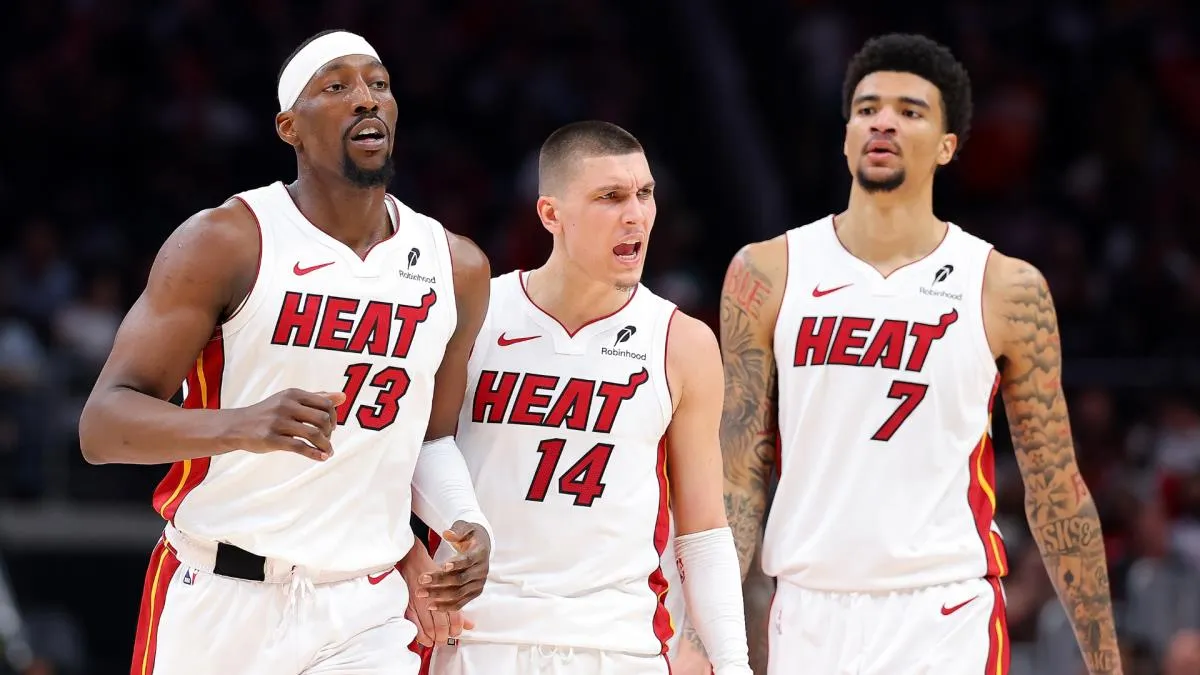
The Miami Heat have long been a symbol of stability and success in the NBA, particularly under the leadership of team president Pat Riley. For over three decades, they have cultivated a winning culture known as Heat Culture, which emphasizes hard work, player conditioning, and a relentless pursuit of excellence. However, recent events have raised significant questions about the sustainability of this culture, especially following a disheartening playoff exit in 2023.
During the illustrious Pat Riley era, the Miami Heat made seven trips to the NBA Finals, a remarkable feat that highlights their commitment to excellence. The team has always prioritized bringing in players who align with their strong work ethic and competitive spirit, creating a culture that seemed almost impenetrable. Famous players like Alonzo Mourning, Dwyane Wade, and Udonis Haslem have all contributed to this legacy, passing the torch to newer stars like Bam Adebayo. For many years, it appeared that the Miami Heat would never falter, but recent developments suggest otherwise.
The 2023 NBA playoffs marked a turning point for the Miami Heat. They were swept in the first round by the Cleveland Cavaliers, suffering a staggering defeat of 138-83—the largest margin of loss in franchise history. This shocking exit has prompted discussions about whether the team has lost its competitive edge. In the aftermath, star player Jimmy Butler openly criticized the team’s performance and was met with a stern response from management, indicating a growing disconnect.
Compounding their issues, the Miami Heat faced challenges in their trade negotiations, particularly regarding star player Damian Lillard, who ultimately joined the Milwaukee Bucks. Their hardline stance, led by long-time power agent Aaron Goodwin, proved counterproductive, raising questions about the team’s strategy moving forward. Additionally, recent acquisitions like Terry Rozier have struggled to adapt to the rigorous demands of Heat Culture.
The relationship between Jimmy Butler and the Miami Heat has become increasingly strained. Following the playoff debacle, questions arose about Butler's commitment to the team and whether he could still perform at an All-NBA caliber. Despite the franchise’s reluctance to offer him a contract extension, the Warriors recognized his value, signing him to a two-year max deal. This decision has led to further speculation about how the Heat Culture aligns with the evolving dynamics of the NBA.
As the Miami Heat face these challenges, it is clear that their approach to team culture may require reevaluation. The traditional methods that have served them well for decades may need to evolve to remain relevant in the modern NBA. Players today are less receptive to public challenges and rigid organizational structures, indicating that the Heat must adapt their strategies to support their talent better.
Despite the current turmoil, the Miami Heat still possess valuable assets, including a first-round pick from the Golden State Warriors. However, their roster is perceived as lacking depth and star power, limiting their options for trades. Young players like Kel'El Ware show promise, but the team may need to draft wisely or explore alternative avenues to rebuild effectively.
The Miami Heat have reached a critical juncture in their storied history. With their long-standing Heat Culture now facing unprecedented challenges, it is essential for the organization to adapt and evolve. Whether that means embracing a more flexible approach to player management or reevaluating their recruitment strategies, the future of the Miami Heat will depend on their ability to navigate this period of uncertainty and remain competitive in the ever-changing landscape of the NBA.